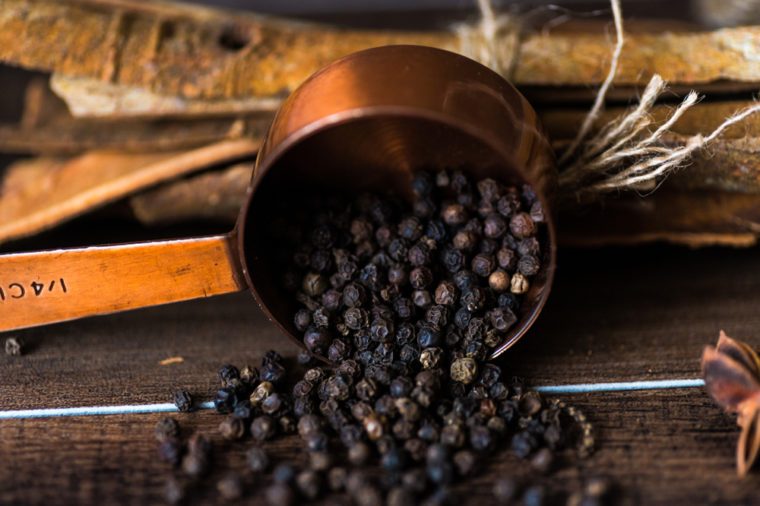cough because you can feel the excess phlegm moving up and out of your lungs.
After productive coughs, you will feel phlegm in your mouth.
A wet, productive cough is almost always a sign of a viral or bacterial infection,
especially in children. When you have an upper respiratory infection, like a cold
or flu, your body produces more mucus than normal. In your nose, you may call
this mucus “snot.” But in your chest, it’s called phlegm.
When phlegm accumulates in your chest it can be hard to breath. You may cough
more at night, because phlegm accumulates at the back of your throat when you
lie down. Although it can disrupt sleep, a wet cough is usually nothing to worry
about. Viruses take time to run their course, so your cough may last several
weeks, but it will usually resolve without treatment.
1_ Cough remedy: Steep some thyme
Thyme is not only useful for flavoring your poultry—it also serves as an
impressive cough suppressant. “The volatile oils in the plant have an effect on
the cough reflex, calming the tendency to cough,” explains Leslie Solomonian, a
doctor of naturopathic medicine. It can be consumed as a tea by mixing 2
teaspoons of crushed leaves into 1 cup boiling water, covering it, steeping for 10
minutes and then straining, but Dr. Solomonian’s favorite way to use it as a
cough remedy is to add it to honey and onion.

2. Honey tea
The researchers reported that honey provided the most significant relief from
coughing.
To use honey to treat a cough, mix 2 teaspoons (tsp) with warm water or an
herbal tea. Drink this mixture once or twice a day. Do not give honey to children
under 1 year of age.

3_ Humidifier
A humidifier can help you avoid breathing in dry air. This is particularly helpful
at night, when the throat naturally dries out. A dry throat is more prone to
irritation and inflammation. Phlegm in the respiratory tract becomes thinner and
easier to move out of the lungs.
4 _Mustard Plaster
"This is a comforting 'old folk' remedy that really works. To do this, take ground
mustard seed or powder and mix with warm water sufficient enough to make a
thick paste (brownie batter consistency). Slather the paste between two damp
paper towels or cheesecloth (something thin enough that the herb will still make
contact with your skin). Place over your entire chest and cover with a low
heating pad for 10 to 20 minutes before bed. For an added boost, rub a few drops
of castor oil onto your chest before applying the plaster.
The skin will turn a bit red, but don't worry! Remove if the warming sensation
becomes uncomfortable," says Nayak.
:max_bytes(150000):strip_icc():format(webp)/cdn.cliqueinc.com__cache__posts__245829__natural-cough-remedies-245829-1515091847731-main.700x0c-75f18d06ba264f25a37030fe3af658c0.jpg)
5_ Ginger
One study suggests that some anti-inflammatory compounds in ginger can relax
membranes in the airways, which could reduce coughing. The researchers
mainly studied the effects of ginger on human cells and animals, so more
research is necessary.
Brew up a soothing ginger tea by adding 20–40 grams (g) of fresh ginger slices
to a cup of hot water. Allow to steep for a few minutes before drinking. Add
honey or lemon juice to improve the taste and further soothe a cough.
6_ Herbal cough drops
You can try natural cough drops made with honey, lemon, eucalyptus, sage,
thyme, or peppermint.
7_ Steamy shower
A steamy shower can help you moisten your upper airways. It may also help
break up the mucus in your chest. Try to stay in the shower or in a steamy
bathroom for at least five minutes. You can repeat as needed.
8. A hot shower
Crank up the hot water, close the windows and turn off the exhaust fan. Steam
can be a cough’s worst enemy, and thus, your best friend. Steam works to soothe
the airways and loosen sinus congestion and phlegm in your throat and lungs.
(Although take note, WebMD warns that steam may exacerbate coughs caused
by asthma.)

9_ Demulcent Herbs
"I like to use demulcent herbs to soothe the throat when there is a dry cough or a
cough that is being irritated by post-nasal drip. Demulcent herbs include slippery
elm, marshmallow, and licorice. The herbs have a high amount of mucilage that
coats the mucous membranes of the throat to soothe that scratchy, raw, irritated
feeling. I normally give these in the form of a tea that can be taken hot or iced.
The key here is to brew the tea very strong and let it steep for a long period of
time. I often make a big batch of the tea hot, start sipping 10 minutes later, and
keep the herbs in while I sip it all day," says Nayak.
:max_bytes(150000):strip_icc():format(webp)/cdn.cliqueinc.com__cache__posts__245829__natural-cough-remedies-245829-1515091888669-main.700x0c-cd33ef1daf2e44708e6f5846f6b08688.jpg)
10_ Brew black pepper tea for a wet cough
This home remedy is rooted in two very different traditions: New England folk
medicine and traditional Chinese medicine. The rationale behind it is that black
pepper stimulates circulation and mucus flow; honey is a natural cough
suppressant and mild antibiotic. To make the tea, place 1 teaspoon of freshly
ground black pepper and 2 tablespoons of honey in a cup. Fill with boiling water
and let steep, covered, for 15 minutes. Strain and sip as needed. This remedy
works best on coughs that produce mucus and isn’t suitable for dry coughs. Try
these other ways to help you get over a cold quickly.








0 Comments